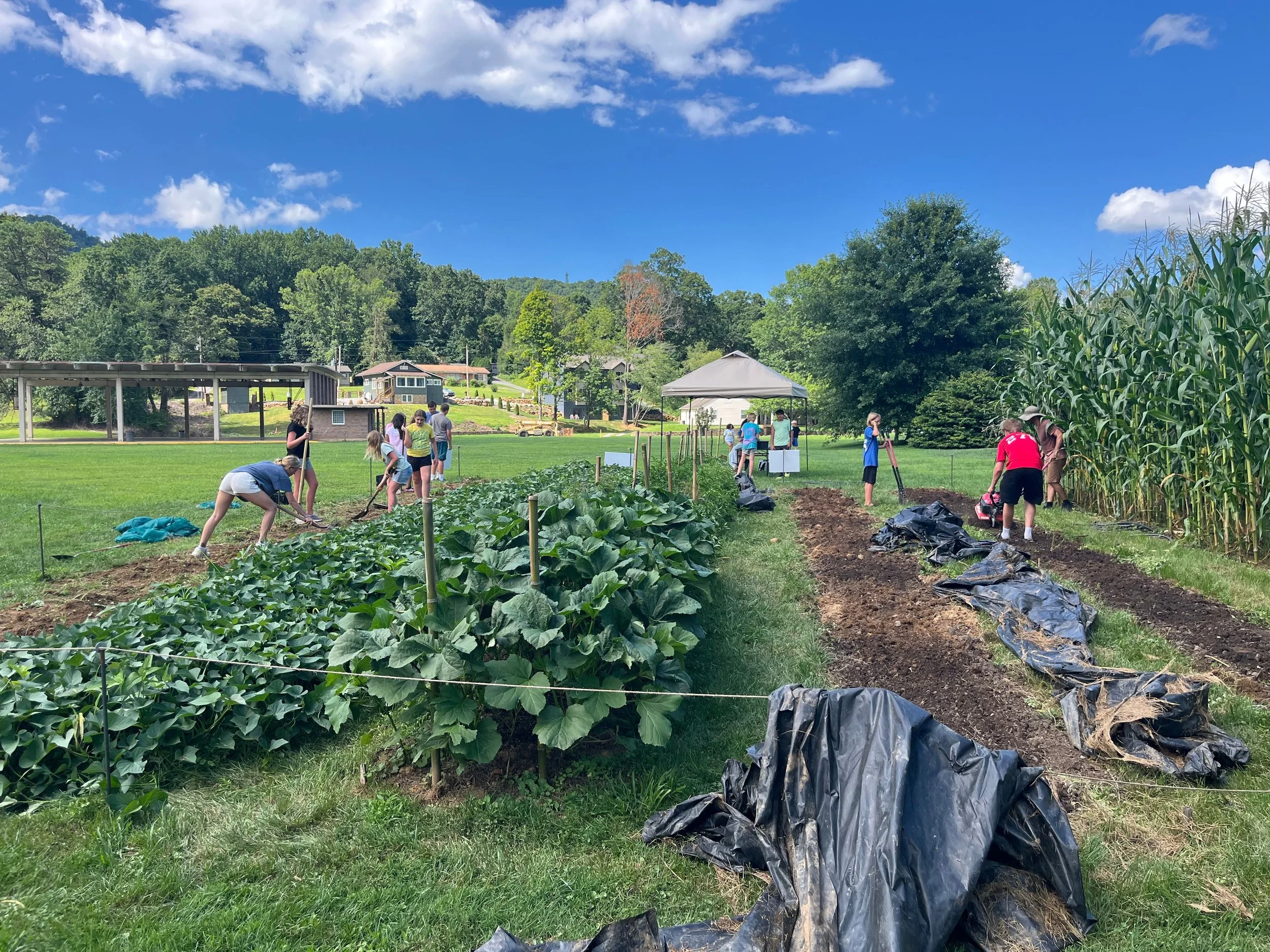Garden
Jounce Community Gardens
Jounce High afterschool is growing in more ways than one. This past spring, Jounce High students broke ground on two small community gardens at Haywood Community College and Lake Junaluska.
The new Jounce Community Garden at Lake Junaluska
With support from HCC staff and volunteer horticulturist George, Jounce students have been helping manage the HCC hoop house and greenhouse space to support our growing needs for seeds and vegetable transplants. Early on, students transitioned the hoop house garden beds for traditional spring vegetables like spinach and garlic, for both food to enjoy now, but also for producing seed for later seasons. Students explored unconventional crops too, like daikon radish and winter peas; we’ll be saving these seeds as well, to use as cover crops to help build fertility at future gardens. Later, students started sweet potato slips and installed a new dye garden on the HCC campus.
Preparing the seed beds at the Haywood Community College hoop house
Starting our own sweet potato slips
In collaboration with HCC facilities, students also installed a new dye garden at the HCC Creative Arts Building courtyard. Madder, Japanese Indigo, Weld and Marigold were plants for both Jounce and HCC students to use for producing robust, colorful lightfast pigments and dyes.
Concurrently, students were breaking ground on a new community garden at Lake Junaluska. Here, over multiple weeks, students double dug 6 large beds in dense sod, amended with compost and worm castings and planted corn, potatoes, peppers and sweet potatoes. We’re in this for the long haul; we’re practicing organic methods with the intention of improving soil fertility over time. When students return in the fall, we’ll harvest what’s there and follow with winter cover crops, including the daikon and winter pea seed that we saved from the HCC spring garden. In the remaining beds we’ll grow spinach for winter harvest and garlic for harvest in the summer of 2026. Future plans for this site include raised beds for use by the Junaluska community, on-site composting, and possibly even solar-powered automated irrigation.
Breaking ground at the Lake Junaluska Community Garden
In the wake of Hurricane Helene, and in light of looming budget cuts to local food-aid programs, it’s important to consider how community gardens help build more resilient food systems. Produce from the Junaluska garden will be donated for redistribution via community food hubs like the FUMC Friendship House and Haywood Christian Ministries.
And while it’s been fun to explore novel sustainable gardening practices like cover-cropping and vermicomposting, in surprising ways, many students are sharing their own skills, often passed down from prior generations, proving that community garden projects in a high-school setting can have a leveling effect, where all students have something to contribute for the greater good.






